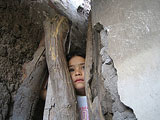Central American Countries Join Forces Against Organized Crime
17 Mar 2011
By Eliot Brockner for ISN
Central American governments are scrambling to fight back against the onslaught of crime and illegal activity that has made the region one of the most violent in the world. Three governments are now in the process of creating multinational partnerships and reorganizing and integrating their domestic security personnel to help counter the threat more effectively.
In January, Guatemalan President Álvaro Colom called for the creation of a multinational force dedicated to combating organized crime, comprising Guatemalan, Honduran and Salvadoran police and military personnel. One of the force's primary targets would be the deeply entrenched 'Los Zetas' drug cartel. The force is expected to be officially established during a June 2011 summit of Latin American leaders that will include Colombian and Mexican presidents Juan Manuel Santos and Felipe Calderón, whose countries play an important role in improving border coordination in the fight against organized crime.
The US has also announced plans to assist in this effort to combat growing insecurity in Central America. In February, William Brownfield, the US Assistant Secretary for the Bureau of Narcotics and Law Enforcement, visited Guatemala, El Salvador and Honduras, where he announced the dispensation of $1.75 million to help shore up the Honduran police force.
The sum is part of a broader $200 million package known as the Central America Regional Security Initiative (CARSI), a US policy intended to improve citizen security throughout Central America by dismantling criminal networks, creating programs for at-risk youth, training police and building public institutions as well as people's faith in them. CARSI was first developed in 2009 to tackle organized crime in Mexico, a mission that the Merida Initiative - the US' multi-million dollar aid package that focused aid primarily on Mexico and only slightly on Central America, proved unable to fully address on its own given the rapid growth of violence in the area.
Building the best multinational force - challenges ahead
This new commitment to cooperation and partnership is an important first step for the region. Yet dismantling the criminal networks in question will be the true measure of success. This work will be largely carried out by the yet-to-be established multinational drug-busting force. The exact make-up of the force - police and/or military personnel - is not yet known.
Early signs already point to an increased military and police presence in civilian life in Central America. In Honduras on 3 March, for example, the government of President Porfirio Lobo ordered military personnel to be deployed to the streets of the country's largest and most dangerous cities. Some see Lobo's move as a natural continuation of a pattern that began in Mexico in 2006, when Calderón occasionally used the military to battle organized crime, when local police forces had been overwhelmed by their opponents. Additionally, Mexico announced a change to its police structure just last October: Police officers at all levels of government were to be placed under a external pageunified commandcall_made. This is a move that some analysts see as a step toward increasing the use of state and federal forces, while decreasing the use of municipal forces.
The more frequent use of military personnel for traditional police work reflects the nature of the threat presented by organized crime; that is, when a typical police issue like street crime is then linked to transnational criminal organizations - as is often the case in Central America - it assumes a more daunting character, and transforms the issue into one that local police are not equipped to handle alone.
Local and municipal police forces are already buckling under increasing pressure - not just from organized crime, but also from the people they are paid to protect. Poorly paid and understaffed, these police forces have been accused of corruption and brutality. Many officers also face regular death threats, making personnel retention a real challenge.
In an effort to create external pagemore effective and trustedcall_made police units at the city level, Guatemala, for example, has been experimenting with the 'Comisaria Modelo' (Model Police Precinct) for years. As part of the US State Department-sponsored program, police officers receive extensive training before hitting the streets and regular training thereafter. Officers in the program are also required to take regular polygraph tests and submit to having their bank accounts monitored in an effort to stem corruption. Although the Guatemalan government has reported external pagesuccesscall_madewith the project, proper external pageresourcingcall_made remains an impediment to large-scale implementation, as the project is costly in terms of time, human resources and funding. The military seems, therefore, to be in a better position to address the problem.
The challenges facing police forces and military personnel alike beg the question: Who will lead the charge to improve citizen security in Central America? Although military forces will undoubtedly play a role, it remains unclear to what extent they can and will be used in any long-term strategy. More than 50 percent of Guatemalans, Hondurans and Salvadorans mistrust the armed forces, according to external pageresearchcall_made from the Latin American Public Opinion Project at Vanderbilt University. Any increase in violence or perceived abuse resulting from CARSI operations would only further erode trust. But if local militaries, in spite of their problems, are seen as the most capable and least problematic forces to carry out drug-busting missions, they may necessarily become the default option.
Ultimately, whether it is the municipal police or traditional military forces that come to the fore, the integrated partnership between the Guatemalan, Honduran and Salvadoran police forces, intelligence agencies and militaries represents an important step forward in fighting transnational, nimble and well-entrenched opponents. A process of trial and error, and consistently tweaking policy to better tackle organized crime - in short, staying as agile as their opponents - will also be important to the success of any long-term policy.

